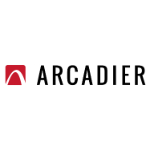TechnologyCounter provides genuine, unbiased real user reviews to help buyers make informed decisions. We may earn a referral fee when you purchase through our links, at no extra cost to you.
List of 15 Best Web Design Software
Showing 1 - 15 of 212 productsAdobe XD, the ultimate design software for all your digital needs. With intuitive tools and a user-friendly interface, XD allows you to create stunning websites, apps, and prototypes in no time. Seamlessly switch between design and prototyping mode t...Read Adobe XD Reviews
Adobe Dreamweaver is a professional web development tool that has been a go-to for designers and developers for over two decades. Known for its user-friendly interface and robust features, Dreamweaver is a software that allows users to create and edi...Read Adobe Dreamweaver Reviews
Leadpages is a and user-friendly landing page builder, designed to help businesses of all sizes generate high-quality leads and boost conversion rates. With its intuitive drag-and-drop editor, extensive library of templates, features, Leadpages makes...Read Leadpages Reviews
Mobile Roadie is a and innovative mobile app development platform that allows businesses and individuals to effortlessly create custom apps for iOS and Android devices. With a user-friendly interface and a wide range of features, Mobile Roadie provid...Read Mobile Roadie Reviews
Arcadier is a leading e-commerce platform that empowers entrepreneurs and businesses to easily create and manage their own online marketplace. With its user-friendly interface and customizable features, Arcadier offers a seamless solution for individ...Read Arcadier Reviews
Stadium is a software designed to assist in the swift development of web applications with advanced features. It offers a user-friendly interface with drag and drop functionality, along with a variety of modern, pre-made themes to select from. The b...Read Stadium Reviews
RabbitLoader is a CDN cache-based speed optimization plugin that reduces the loading time of WordPress websites by using caching, CDN, and other approaches. Allowing you to attain a flawless score on Google PageSpeed Insights and improve your SEO ran...Read RabbitLoader Reviews
Zyro is a website builder that takes your online presence to the next level. With its user-friendly interface and innovative features, Zyro allows you to create a professional website in minutes. Leave the technicalities to us and focus on showcasing...Read Zyro Reviews
Wix is an innovative website building platform, empowering individuals and businesses to create professional and visually appealing websites without any coding or design skills. With its user-friendly interface and wide range of customizable template...Read Wix Reviews
Mockplus is a and user-friendly prototyping tool designed for UX/UI designers, product managers, and developers. With its intuitive drag-and-drop interface and rich library of pre-designed components, Mockplus streamlines the process of creating inte...Read Mockplus Reviews
Optiin is a software solution for optimizing your business operations. With its user-friendly interface and innovative features, Optiin streamlines processes and boosts productivity. Say goodbye to manual tasks and hello to efficiency with Optiin. Di...Read Optiin Reviews
Webix is a JavaScript UI library that offers developers a wide range of customizable is a components for creating modern and user-friendly web interfaces. With its flexible and versatile tools, Webix simplifies the process of web development and enha...Read Webix Reviews
Riseapps is a leading software development company known for its innovative solutions and top-notch services. With a team of skilled developers and designers, we strive to provide customized and seamless solutions to meet every business needs. Our co...Read Riseapps Reviews
BSITES is a highly functional software designed to streamline your business operations. With its user-friendly interface tools, BSITES simplifies tasks and boosts efficiency. Increase productivity and gain a competitive edge in the market with BSITES...Read BSITES Reviews
TemplateMonster is your one-stop destination for high-quality website templates, HTML5 templates, WordPress themes, and other digital assets. With over 15 years of experience in the industry, TemplateMonster offers a vast range of creative and profes...Read TemplateMonster Reviews
- What Is Web Design Software?
- Top Reasons Why Businesses Need Web Design Software?
- List of 10 Best Web Design Software for 2025
- What Are the Top Key Features of Web Design Software?
- What Are the Top Benefits of Web Design Tools?
- What Are the Steps to Choose the Right Web Design Software?
- What Are the Types of Web Design Software for Different Industries?
- What Are the Technology Trends for Best Web Design Software?
- What Are the Deployment Options for Web Design Software?
What Is Web Design Software?
Web design software is a program that allows users to construct a website aesthetically by assembling components such as text, photographs, graphics, and animations. All components are developed within the context of a web page, which is a collection of content structured in hypertext pages. Web design software includes tools for creating and formatting text, inserting items like images and videos, controlling the design, format, and layout of a web page, and even publishing the finished site.
Web design software is available in a variety of formats, ranging from simple software for beginners to complex software for experienced web designers. All versions will enable you to develop a visually appealing site with enough basic components to make it effective without the need for significant computer programming experience. Some web design software includes tools for designing and building the website's framework, while others are limited to formatting the page and inserting things on the page. It is critical to conduct research and select the software version that best meets your skills and requirements.
Top Reasons Why Businesses Need Web Design Software?
-
Professional design: Web design software enables firms to offer their website visitors a professional and polished appearance.
-
Brand consistency: Web design Software enables organizations to verify that their Web design effectively represents their brand.
-
Simplified processes: The software streamlines the website creation process, helping firms to save time and money.
-
Flexibility: Web design software enables firms to effortlessly customize their website to meet their unique requirements.
-
Compatibility: The program makes sure that the website works with all browsers and devices.
-
Search engine optimization: Web design software aids in the ranking of a website in search engine results pages.
-
Responsive design: The software enables firms to develop a website that adapts dynamically to the device being used to see it.
-
Mobile optimization: The program enables businesses to design a mobile-friendly website that works for any user, regardless of the device from which they view the website.
-
Social media integration: Web design software can integrate a company's social network accounts to make it easier for visitors to follow them.
-
Scalability: Web design software enables firms to easily modify their website to accommodate new features or content.
-
Cost-effectiveness: Web design software provides a dependable and cost-effective alternative for organizations.
-
CMS integration: Web design software can make it easy to manage material on a website.
-
data and reporting: The software can provide organizations with insights and data on the performance of their websites.
-
Security: Web design software can provide businesses with the security capabilities they need to protect sensitive information.
-
Self-sufficiency: Web design software helps firms to create websites without outsourcing the process.
List of 10 Best Web Design Software for 2025
Check out our list of the top 10 Web design software for 2025:
1. Wix
Wix is a cloud-based Web design tool that allows users to create and manage websites without any extensive technical or coding experience. It has an easy-to-use interface and a drag-and-drop editor, making it suitable for individuals, small organizations, and even huge enterprises.
Features:
- Drag-and-Drop Editor
- Hundreds of Templates
- App Market
- Mobile Optimization
- Wix ADI (Artificial Design Intelligence)
- E-commerce Software
- SEO (Search Engine Optimization) Tools
- Wix Ascend
Pricing:
Wix has many pricing levels to meet the demands of different users. Hosting, storage, and access to other features are typically included in the pricing plans. The following are the primary plans:
- Free Plan: Wix offers a free plan, however, it includes Wix branding on the website and has limited capabilities. It is appropriate for personal projects and minimal testing.
- Premium Plans: Wix's premium subscriptions range between $14 and $49 per month (paid annually). With each higher-tier plan, the specialized features and functionality improve, appealing to personal websites, entrepreneurs, and small to medium-sized organizations.
- Business and E-commerce Plans: Wix offers business and e-commerce options ranging from roughly $23 to $500+ per month (paid annually) for users wishing to set up online storefronts. These plans include more sophisticated e-commerce capabilities and tools.
- Enterprise Plans: Wix also provides specialized enterprise plans for larger corporations and organizations, which include dedicated support and custom solutions.
2. Weebly
Weebly is a popular website builder that enables people to easily create and design websites without substantial technical skills. It was launched in 2006 and has since become well-known for its user-friendly interface and diverse features.
Features:
- Drag-and-Drop Website Builder
- Responsive Templates
- E-commerce Functionality
- App Center
- SEO Tools
- Blogging Capabilities
- Domain Hosting
Pricing:
Weebly offers different pricing plans to cater to varying needs:
- Free Plan: Users can create and publish a basic website using a Weebly subdomain with this package. It does, however, have restricted features and has Weebly advertisements on the site.
- Personal Plan: Individuals or freelancers who want to connect their own domain should choose the Personal package. It adds new functionality and removes Weebly advertisements, resulting in a more professional presentation.
- Professional Plan: This package is designed for entrepreneurs and small enterprises and provides additional features such as site search, password protection, and membership choices.
- Performance Plan: The Performance plan is intended for online retailers and enterprises that want to improve their e-commerce capabilities. It provides extensive e-commerce features as well as real-time shipping rates.
3. WordPress
WordPress is a well-known open-source content management system (CMS) that enables users to effortlessly construct and manage websites. It was first introduced in 2003 and has since grown to become one of the most popular platforms for creating websites ranging from simple blogs to complicated e-commerce sites.
Features:
- User-Friendly Interface
- Themes and Customization
- Plugins for Functionality
- Blogging Capabilities
- Search Engine Optimization (SEO)
- Media Management
- Mobile Responsiveness
- Multi-User Capability
- Regular Updates and Security
- Community Support
Pricing:
WordPress is open-source software, which means it is free to download, use, and change.
4. Adobe Dreamweaver
Adobe Dreamweaver is a well-known web design application and integrated development environment (IDE) created by Adobe Systems. Web developers and designers use it extensively to construct, design, and administer websites and web applications. Dreamweaver has an easy-to-use interface that appeals to both novice and professional developers, making it a versatile solution for a variety of web-related projects.
Features:
- Visual WYSIWYG Editor
- Live Preview
- Code Editor
- Responsive Design
- Built-in Templates
- Integration with Adobe Creative Cloud
- FTP and SFTP Support
- Code Hinting
- Git Integration
- Server-Side Language Support
Pricing:
Adobe Creative Cloud is a subscription-based service that includes Dreamweaver. Pricing varies depending on the plan and area. Typically, the plans comprise various combinations of Adobe software packages.
5. Figma
Figma is a popular cloud-based design and prototype tool for creating user interfaces, wireframes, and interactive designs by designers, teams, and businesses. It distinguishes itself through its collaborative capabilities, real-time editing, and platform independence, making it an excellent alternative for design teams working remotely or in distributed contexts.
Features:
- Real-time Collaboration
- Browser-Based Tool
- Responsive Design
- Design Components and Libraries
- Prototyping and Interactions
- Version History and Comments
- Developer Handoff
- Plugins and Integrations
Pricing:
Figma offers various pricing plans, including:
- Starter (Individual): Individual users can generate and edit design files with this free plan. Collaboration features, on the other hand, are limited.
- Professional (Editor): The Professional plan is intended for groups and contains sophisticated collaboration tools. When invoiced annually, it cost $15 per editor each month.
- Organization: The Organization plan, designed for larger teams and corporations, includes additional team management and security capabilities. Pricing was determined by the size of the business and the unique requirements.
6. Google Web Designer
Google Web Designer is a professional-grade web-building tool that is available for free from Google. Its primary purpose is to generate interactive and visually beautiful HTML5-based content and ad banners for both desktop and mobile devices. Whether you're an expert web designer or a newbie, the tool has an easy-to-use interface and a variety of capabilities for creating engaging web content.
Features:
- Interactive Design
- HTML5 and CSS3 Support
- Responsive Design
- Pre-built Components
- Dynamic Ad Campaigns
- Animation Tools
- Ad Format Support
- Preview and Testing
- Integration with Google Products
- Code View
Pricing:
Google Web Designer is a free program, which means it costs nothing to use or download.
7. Bluefish
Bluefish is a sophisticated and versatile open-source text editor primarily intended for web development and programming. It is compatible with a variety of operating systems, including Windows, macOS, and Linux. Bluefish is popular among web developers and programmers due to its speed, lightweight nature, and ease of use.
Features:
- Syntax Highlighting
- Code Auto-Completion
- Project Management
- Search and Replace
- Multi-Document Editing
- Integration of External Tools
- Code Snippets and Templates
- FTP/SFTP Support
Pricing:
In terms of pricing, Bluefish is an open-source software, which means it is free. You can download and use it for free.
8. Vev
Vev software is most likely a web-based or desktop tool that allows you to create interactive and visually appealing material without requiring considerable coding or technical knowledge. Its goal is to enable users such as designers, marketers, and content providers to create engaging digital experiences such as websites, landing pages, interactive banners, and more.
Features:
- Drag-and-Drop Interface
- Interactive Components
- Collaboration
- Responsive Design
- Animation and Effects
- Pre-built Templates
Pricing:
The particular features and pricing may differ based on the software and its updates over time.
9. Espresso
Espresso is a popular software solution for web developers and designers that allows them to easily construct stunning, flexible websites. It is mostly used for front-end web development, and it has a variety of features and tools to boost productivity and efficiency.
Features:
- Code Editor
- Live Preview
- CSS Preprocessing
- Visual CSS Editing
- Website Synchronization
- Code Reformatting
- Git Integration
- Project Organization
- Snippet Library
Pricing:
The particular features and pricing may differ based on the software and its updates over time.
10. Xara Web Designer+
Xara Web Designer+ is a web design software suite created by Xara Group Ltd. It is well-known for its user-friendly design and powerful capabilities, which enable users to construct professional-looking websites without any coding skills. Whether you are a novice or an experienced web designer, Xara Web Designer+ has a toolset to meet your demands.
Features:
- Intuitive Drag-and-Drop Interface
- Responsive Web Design
- Pre-designed Templates
- Animation and Effects
- Advanced Image Editing
- Widgets and Add-ons
- Search Engine Optimization (SEO) Tools
Pricing:
Xara Web Designer+ is a one-time purchase with many versions (e.g., Web Designer+, Web Designer Premium), each with increasing degrees of features and capability. Prices ranged from about $50 to $100 USD.
Xara also sold a Designer Pro X bundle that comprised Xara Web Designer+ and Xara Photo & Graphic Designer. This package was more expensive than the individual program versions.
What Are the Top Key Features of Web Design Software?
The following are the main key features of Web design software:
1. Drag-and-Drop Visual Editor: With a straightforward user interface, this allows users to create and customize webpages.
2. Templates and Themes: This feature enables users to modify their websites using pre-designed templates and themes without the need for programming experience.
3. Responsive Web Design: This feature allows websites to be optimized for all devices, from mobile phones to desktop PCs.
4. SEO Optimization: This function allows websites to be optimized for search engine rankings, resulting in increased web visibility.
5. eCommerce Support: This feature enables websites to accept online payments and host online stores with ease.
6. Database Management: Users can use this function to manage vast volumes of data, such as client information or product catalogs.
7. Site Performance: Websites can be enhanced for speed and performance with this function.
8. CMS (material Management System): This functionality enables users to create, update, and manage material on their websites with ease.
9. Security: With this capability, customers may protect their websites from unwanted online attacks.
10. Analytics and Tracking: This feature enables customers to track the efficiency of their website and make informed decisions to improve it.
What Are the Top Benefits of Web Design Tools?
-
Improved user experience: With features such as drag-and-drop menus, configurable templates, and powerful editing tools, Web design software makes it easier for website owners to construct a beautiful and intuitive website. This contributes to a more engaging user experience, encouraging visitors to stay longer and take action.
-
Improved SEO exposure: Web design software improves websites for SEO, which can help increase website visibility by enhancing organic search ranking. This makes it easier for consumers to find your website on search engines, resulting in more targeted traffic and improved conversion rates.
-
Simplified content management: Web design software eliminates the need to add, update, or delete site content manually. Website owners may quickly maintain and update site material with the correct tools, eliminating the need for technical experience.
-
Cost savings: Web design software is frequently less expensive than traditional web design services. Website owners can benefit from both the upfront savings of not having to employ a designer and the time and money saved by readily modifying their own website content.
-
Compatibility with mobile devices: Web design software develops mobile-friendly webpages that look beautiful on any device. Mobile visitors can access website content without manually zooming or scrolling, resulting in a consistent user experience across PCs, tablets, and smartphones.
What Are the Steps to Choose the Right Web Design Software?
1. Determine your needs: Before choosing a Web design software, it is critical to determine your unique requirements, such as the size of the website, required functionality, material that will be included, and budget.
2. Investigate Web design software options: Investigating software options such as WordPress, Dreamweaver, and Adobe Creative Cloud can assist you in determining which platform provides the capabilities and tools required for your Web design project.
3. Compare features and pricing: Each software package has its own set of features and pricing plans. Take the time to analyze the features of various software to choose which one best meets your Web design requirements as well as your budget.
4. Gather input from other users: Before making a final selection on Web design software, it is critical to gather feedback from other users who have previously used the software. This might assist you in determining whether the software is simple to learn and utilize.
5. Test the software: Once you've decided on which Web design software is best for you, you should put it through its paces. Most software products include trial versions to guarantee that you are making the appropriate decision.
What Are the Types of Web Design Software for Different Industries?
Web design software is used to design and build websites for a variety of industries. There are three sorts of Web design software available, depending on the industry: drag-and-drop site builders, content management systems (CMS), and HTML/CSS editors.
Drag-and-drop website builders are simple to use and extremely configurable website creation tools. These tools include a wide range of design features and can be used to quickly create a bespoke website by someone with little to no coding skills. Small businesses, digital marketers, and bloggers who require a quick and easy way to develop an online presence are the most likely to use them.
WordPress, for example, is an open-source web development platform utilized by folks with more coding skills. Because of its variety of features and customization choices, it is extensively used for various corporate websites, e-commerce sites, and blogs.
Finally, HTML/CSS editors are commonly utilized by professional web designers for advanced web creation. These technologies enable web developers to precisely alter the appearance and coding of their website.
Any of these Web design software programs can be used to produce an effective and professional website for various businesses, depending on the complexity of the website project and the developer's level of coding and design experience.
What Are the Technology Trends for Best Web Design Software?
The best technology trends There are four key areas of Web design software:
-
User Experience (UX): UX includes all aspects of a website's design, from the user interface (UI) to the navigation and page layout. Web designers must guarantee that their sites are user-friendly and have configurable features that captivate users. Recent developments have centered on improving the user experience with features like as animations, progressive disclosure, and user-led design.
-
Responsive Design: A few years ago, responsive design became an industry standard. It ensures that a website looks well on any platform, from large desktop displays to mobile phones and tablets. This is a growing trend as businesses attempt to make their websites mobile-friendly.
-
Analytics/Data: As web designers can utilize analytics to better understand user behavior, data-driven design is becoming increasingly prominent. This could imply that design adjustments are needed to improve the user experience. Data-driven design enables designers to make better-informed decisions and customize website user experiences.
-
Accessibility: The growing emphasis on accessibility stems from the requirement to guarantee that webpages are simple to use for all people. The most recent web design trends have focused on ensuring that people with disabilities may easily traverse pages.
Furthermore, web designers can implement elements such as audio descriptions and high-contrast modes to make it easier for all visitors to browse the website.
What Are the Deployment Options for Web Design Software?
Web design Software can be deployed in a number of ways, including traditional hosting and cloud-based server architectures. The Web design program is traditionally hosted on an on-premise server, with the program configured via FTP and utilities such as Apache or Microsoft IIS. This type of deployment is appropriate for smaller applications and hosting on a smaller scale.
Cloud-based server architectures offer a higher scale and rely on virtualization systems to access servers. These platforms often offer software such as Amazon Web Services and Microsoft Azure, as well as greater flexibility in scaling up and down hosting requirements. In addition, cloud-based deployment provides greater redundancy, high availability, and scalability than traditional hosting.
Containerization is a new deployment strategy in which web-based software is packaged in a lightweight, portable, and isolated container. Because the software can be installed fast and without additional host resources, this strategy offers for better scalability and portability. However, this strategy necessitates additional setup to prepare the environment, resulting in a higher setup cost.















